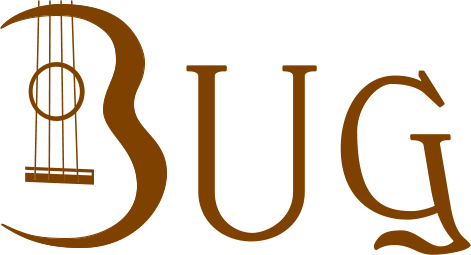DOWNLOAD THE SONGSHEET
Muirsheen Durkin (G)(WORD)
Muirsheen Durkin (G)(PDF)
Muirsheen Durkin (C)(WORD)
Muirsheen Durkin (C)(PDF)
You can play along with the Johnny McEvoy recording in GCEA tuning, if you put your capo on the 1st fret and use the (C) songsheet! At the BUG Jam we'll likely use the (G) songsheet.
Muirsheen Durkin, or Goodbye Mursheen Durkin as it is often called, is a song about emigration from Ireland to America in the 19th century. Unlike many Irish emigration songs, it’s jaunty and optimistic in nature. Like many Irish emigrants, he’s sick of digging praties (potatoes) and wants to dig for gold in California. The reference to gold in California suggests the song dates from the mid-1840s when the gold rush was at its height.
The Cobh of Cork is the port area of Cork City on the south coast of Ireland. It was renamed Queenstown in the 19th century in honour of Queen Victoria. This was resented by many Irish people, and the singer in Muirsheen Durkin feels the need to explain where he means when he uses the term Queenstown. It was renamed Cobh after Ireland regained its independence.
Muirsheen Durkin has also been recorded by numerous artists including The Dubliners, Foster and Allen and The Pogues. It is set to an old Irish reel, Cailíní deasa Mhuigheo, which means the Pretty Girls of Mayo.
The song was first collected by the great Irish collector, Colm Ó Lochlainn, who published it in More Irish Street Ballads in 1965.
The Irish Street Ballads Press was initiated by Colm Ó Lochlainn. He was an Irish printer, typographer, collector of Irish ballads, and a traditional Irish Uilleann piper. In 1939, he authored the book “Irish Street Ballads”, which became a notable collection of these folk songs. Later, in 1965, he followed it up with "More Irish Street Ballads". Ó Lochlainn was also associated with the Three Candles Press, which he founded in 1926. His contributions to preserving and sharing Irish cultural heritage through music and literature were significant.
